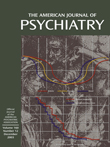Antipsychotic-Induced Paroxysmal Perceptual Alteration
Ms. A, a 49-year-old woman with a 2-year history of generalized anxiety disorder, had suffered from dizziness, anxiety, and syrigmus. Ophthalmologic, otolaryngological, and neurological examinations showed no abnormality, including cataract, and she had good vision and did not wear glasses. Her symptoms did not respond to antidepressants or anxiolytics. Haloperidol, 0.5 mg b.i.d., was added to her regular regimen of alprazolam, 1.2 mg t.i.d., because she became obsessed with her symptoms. Two days after haloperidol treatment was started, the following symptoms occurred: “The fine pattern of the wall and ceiling seems more vivid than usual. I have also noticed that outlines of papers and tiny objects such as dust seem more prominent. These symptoms occur suddenly like an ‘attack’ almost every afternoon and last an hour.”These symptoms disappeared 2 days after haloperidol treatment was discontinued. Although Ms. A subsequently tried various antidepressants and anxiolytics, none of them ameliorated her original symptoms. Then we prescribed methotrimeprazine (levomepromazine) alone, 10 mg at bedtime, and on the second day she experienced the same symptoms as those induced by haloperidol: “I am having the same ‘attacks.’ Light seems much brighter than usual. Tiny objects like dust and stains seem to be emphasized for a couple of hours every night.”The bizarre symptoms disappeared soon after we switched the methotrimeprazine to vitamin E, 150 IU/day, as she requested. Her medication regimen has remained the same ever since.
References
Information & Authors
Information
Published In
History
Authors
Metrics & Citations
Metrics
Citations
Export Citations
If you have the appropriate software installed, you can download article citation data to the citation manager of your choice. Simply select your manager software from the list below and click Download.
For more information or tips please see 'Downloading to a citation manager' in the Help menu.
View Options
View options
PDF/EPUB
View PDF/EPUBGet Access
Login options
Already a subscriber? Access your subscription through your login credentials or your institution for full access to this article.
Personal login Institutional Login Open Athens loginNot a subscriber?
PsychiatryOnline subscription options offer access to the DSM-5-TR® library, books, journals, CME, and patient resources. This all-in-one virtual library provides psychiatrists and mental health professionals with key resources for diagnosis, treatment, research, and professional development.
Need more help? PsychiatryOnline Customer Service may be reached by emailing [email protected] or by calling 800-368-5777 (in the U.S.) or 703-907-7322 (outside the U.S.).

